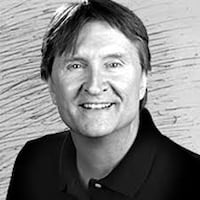Coffee by the numbers
Coffee production industry annual revenue: $11.1 billion
Coffee production industry annual profit: $543 million
Amount Americans spend annually on coffee: $40 billion
Percentage of Americans who consume coffee daily: 61 percent
Sources: IBISWorld, National Coffee Association
Coffee is a mission for Paul Kurtz — and the result of one, too.
His business, Hemisphere Coffee, came about because of church missions Kurtz joined in Central America, and today, fueled by his experiences during those church missions, Kurtz is involved in each and every aspect of the coffee business.
Kurtz imports coffee beans — a whopping 100 tons a year — directly from farmers in Costa Rica, Nicaragua and Thailand. He operates a wholesale coffee business and distributes his direct-imported beans to 25 roasteries throughout the country. He roasts a small portion of beans himself and distributes the roasted beans to churches in the Dayton and Springfield area and to retailers such as Der Dutchman restaurants throughout Ohio. And yes, he grinds and brews some of his roasted beans for his own retail coffee shop that is preparing to relocate to larger digs in downtown Mechanicsburg.
“The only thing I don’t do is own a coffee farm,” Kurtz said.
The future appears bright for coffee, in Champaign County and elsewhere. Coffee has been a growth industry in recent years, and two reports by Los Angeles-based IBISWorld, Inc., an independent industry research company, suggest that growth will continue over the next five years. IBISWorld researchers project that the coffee production industry’s revenues will grow at an annual rate of 1.5 percent each of the next five years to $12 billion.
And there’s good news for coffee shops, too: IBISWorld projects that revenues for the coffee-and-snack-shop retail segment will grow at an annual rate of 3.8 percent to $36.4 million from 2014 to 2019, after growing at an annual rate of 2.7 percent over the last five years.
The growth is driven by consumers who are moving away from high-volume, low-quality coffee and are now buying premium, sustainable coffee, the industry researchers said. A National Coffee Association consumer survey supported that trend. The NCA study released earlier this year showed daily consumption of gourmet coffee reached 34 percent of American adults, up from 31 percent in 2013.
That’s good news for Kurtz. The beans he imports for Hemisphere Coffee are considered “specialty grade” coffee, which makes up only about 6 percent of the worldwide annual crop, and which is considered the top echelon in quality, Kurtz said.
Kurtz’s traces his coffee odyssey to about 2000, when he was working for Rosedale Mennonite Missions on water and agricultural projects in Central America. He said he encountered several coffee farm owners and workers there who were barely getting by, even as they harvested bumper crops of coffee beans.
The driving factor behind the continued poverty was low prices paid the farmers for their beans, Kurtz said. He asked farmers why they stuck with it. “They told me. ‘This is all we know. We’re fourth-generation coffee farmers,’” Kurtz said.
Back in the U.S., Kurtz assembled a small group of business officials for a return trip to Central America. Ultimately, Kurtz and a group of investors decided a solution would be to import coffee beans directly, eliminating several “middlemen,” he said.
“We’re paying $2.45 a pound to a Nicaraguan farmer who otherwise would get only 80 cents to $1 a pound,” Kurtz said.
Kurtz said he chooses the coffee farms from which he imports beans based on quality. Coffee is not unlike wine — the flavor of beans is affected by a farm’s distinctive combination of climate and soil. “So many variables can affect the flavor,” he said.
Kurtz and his wife Grace opened a retail coffee shop in the village about four years ago, and this year, leased a larger space across Main Street that will serve as a warehouse, roastery and — sometime after the first of the year — the new Hemisphere retail coffee shop.
Hemisphere Coffee’s wholesale customers include Centerville Grace Church on Social Row Road in Washington Twp. and Wittenberg University and Gourmet Gift Baskets in Springfield. Kurtz said he hopes to expand his southwest Ohio business.
And he wants to educate visitors to his Mechanicsburg operation about coffee by offering tours and demonstrations.
Hemisphere Coffee’s slogan is, “We shake the hand of the coffee farmer,” and he has photos of himself doing exactly that.
“I know I’m not changing the world by helping out six farmers in Nicaragua and Costa Rica, but I’m changing their world, and the world of their 300 pickers.”
• On the web: www.hemispherecoffeeroasters.com.
About the Author
